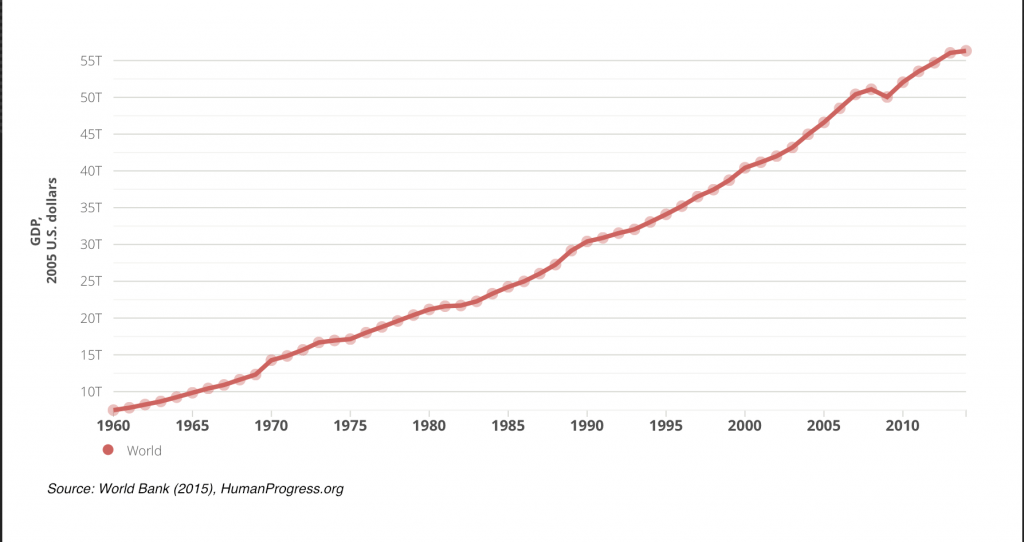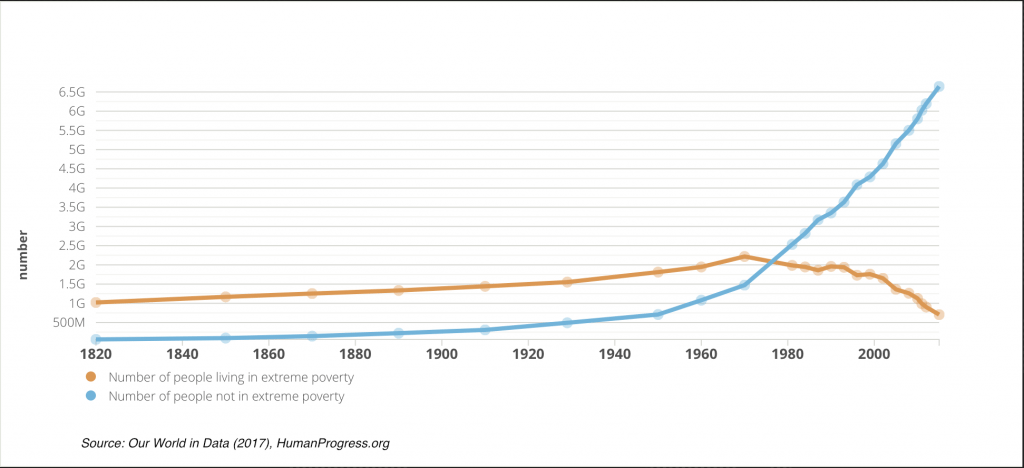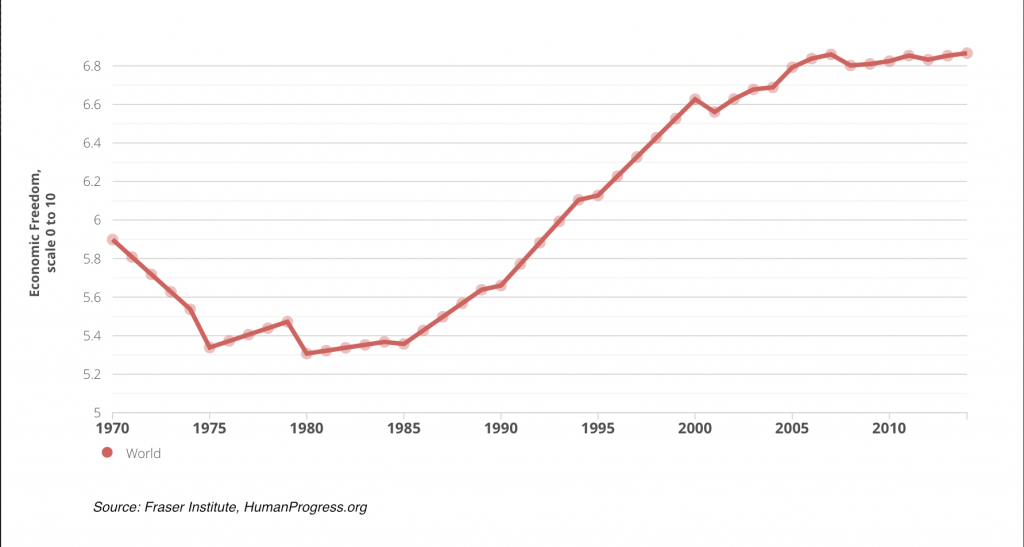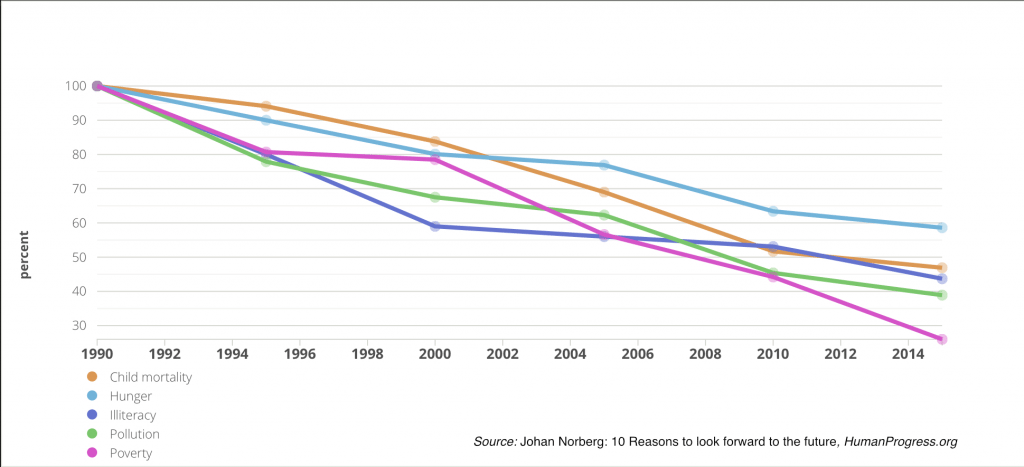Are We in Retreat or in Decline?
The following was written by ESFL Local Coordinator David Borovsky. It was originally posted here.
Not a long time has passed from the latest economic crisis, and some economists are trying to scare us, saying that another one (even worse) is behind the corner. People split when it comes to what caused it (a usual fight between Austrians and Keynesians). Europe is facing a huge migration crisis due to destabilized Middle East, populists are on the rise — one of them became a U.S. president — the European Union is probably in its worst shape to date, horrific terrorist attacks were committed by Islamists, tensions with authoritarian regimes like Putin’s Russia are high, and oh — I almost forgot — machines are stealing our jobs!
All of these negative events are being used by so-called “declinists,” to try and prove that western civilization is in decline, and that the “golden age” of peace and prosperity reached its final stop. But, it’d be appropriate to disclose differences in basic terms — retreat and decline are not equal.
As New York Times columnist Bret Stephens stated in his book, America in Retreat, “Decline is the product of broad civilizational forces- demography, culture, ideologies, attitudes toward authority, attitudes about work- that are often beyond the grasp of ordinary political action. Retreat, by contrast, is often nothing more than a political choice. One president can make it; another president could reverse it.”
Despite the negative cases stated in the beginning, western civilization is still enjoying the highest standard of living ever. Thanks to a free enterprise system, human ingenuity, and creativity, we are still able to prosper and make worldwide progress — even when bad politics is slowing down the process.
Now, let’s take a look at some data.
The total value of global GDP has increased phenomenally over the last decades. In 2017, it hit a new high — over 77.8 trillion USD. You can argue that GDP, as a number, isn’t a sufficient measure by which we can objectively determine well-being, but the fact is that rising GDP as “coarse” indicator of our productivity has always had a direct influence on increasing quality of life. As an example, the United States has the biggest share of global GDP among all countries, and also one of the highest average wages among all OECD countries.

From the year 2000, we can see a drastic downfall in the percentage of people living in extreme poverty (less than $1 USD a day). The economic liberalization of China and India, where hundreds of millions people have been lifted out of poverty, was a big factor in this change. Regarding the current positive trend of prompt reduction in extreme poverty, Bill and Melinda Gates predict that, by the year 2035, there will be almost no poor countries left in the world.

Economic freedom (business climate, ease of doing business, regulatory efficiency) is nowadays also in better shape than was seen in the past.

Child labor, which is in 21st century thankfully considered unacceptable as slavery (already abolished in every country on Earth), is practically diminished to a very bottom.

Summarized, each one of the negative measures such as poverty, overall pollution, illiteracy, hunger or child mortality have all dropped to record lows.

We’re all better off, even if we don’t want to admit it. Today’s opportunistic demagogues, who are on the march (both the alt-right and socialists on the left side of the political spectrum) are absurdly trying to polarize society, and blaming globalization or free markets (literally everything that we should be thankful for). Sadly, masses are buying that false narrative.
It resulted in a state where words like capitalism, free markets, liberalism, or globalization are more demonized than even fascism. It’s fair to point out the problems which we’re facing, but it’s also important to not fall for dysfunctional populist solutions, which will only make the whole situation worse.
We’re in retreat, not decline. Shouldn’t we look for “tweaks,” to face current challenges in a sensible and effective manner and which will speed up our progress, embracing what has served us well, rather than endangering us all by giving power to authoritarians, who want to push illiberal solutions which will never work?
This piece solely expresses the opinion of the author and not necessarily the organization as a whole. Students For Liberty is committed to facilitating a broad dialogue for liberty, representing a variety of opinions. If you’re a student interested in presenting your perspective on this blog, click here to submit a guest post!
